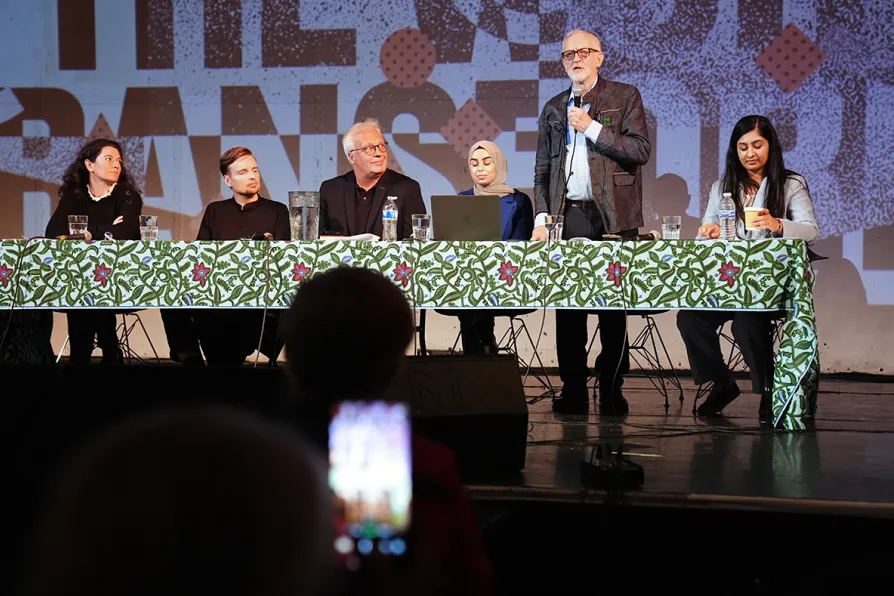
 Jeremy Corbyn, with Zarah Sultana (right) speaking at a discussion on Your Party, their new political party, at The World Transformed conference, at Niamos Radical Arts Centre in Hulme, Manchester, October 10, 2025
Jeremy Corbyn, with Zarah Sultana (right) speaking at a discussion on Your Party, their new political party, at The World Transformed conference, at Niamos Radical Arts Centre in Hulme, Manchester, October 10, 2025
THOUSANDS are set to gather in Liverpool on Saturday for the eagerly awaited inaugural Your Party conference.
Delegates selected through a sortition process, designed to ensure fair representation, will travel from around the country to debate the party’s founding documents at the ACC arena.
With a membership of 50,000, the party is the largest socialist party in Britain in 80 years.
There are hopes the conference will draw a line under the disputes and infighting that have marred the party’s launch.
These included the launch of rival membership systems, disputes over funds, and saw two of the original six MPs involved walk away from the project.
This weekend, members will agree on a founding statement asserting the party’s principles, a constitution and an organisational strategy.
They will also vote on a new leadership model for the party, and decide whether it will be led by a single leader until late 2027, or a “collective leadership model.” No option for co-leadership will be on the ballot.
Co-founder Zarah Sultana, MP for Coventry South, told the Morning Star last week that her measure of a successful conference will be one where “members feel that it is being shaped by them, not MPs.”
She said that she wants delegates to leave Liverpool “feeling empowered, believing that conference was a healthy democratic event, that they have made new connections with people in their communities and regions, and part of a party that is going to win in May and beyond.”
Underlining the importance of building local alliances, co-founder Jeremy Corbyn said that the party must be the “antidote to Reform in every community” with each branch holding public talks every month on issues such as housing, mental health and jobs.
The party, whose official name will also be decided at the conference, seeks to channel the enthusiasm of the Labour Party under his 2015-20 leadership.
“Labour has lost all appeal to the radical sections of the population”, the Islington North MP said.
“Now is the time for a left party in the tradition of the labour movement.”










